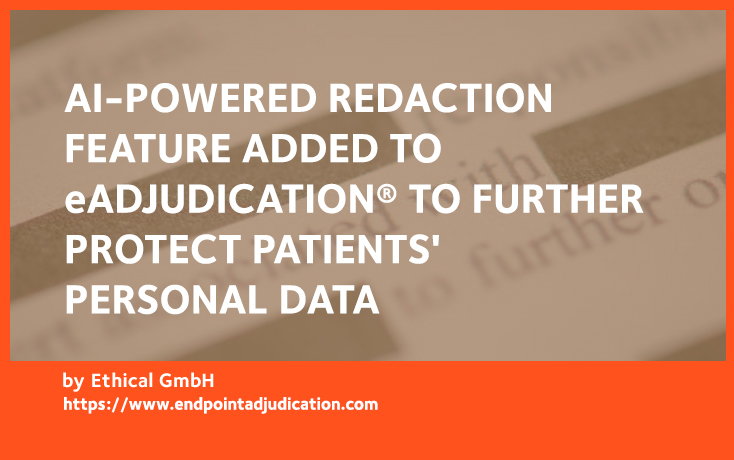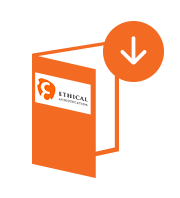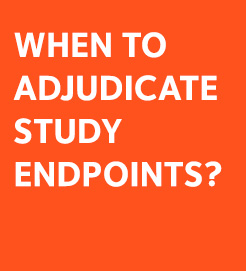Adjudication data packages often include source documents from sites that may contain different types of patient identifiers. On the other hand, sponsors have the responsibility to protect personal information and only submit anonymized documents to the adjudicators. In order to ensure data protection in all circumstances, Ethical’s eAdjudication® is equipped with AI-based technology that assists the coordinator in the cumbersome search for personal data before the package can be submitted.
Disclosing patient personal data in clinical trials is a serious breach to the confidentiality requirement. Investigational sites are systematically trained and regularly reminded of the obligation to redact any personal identifiers when transmitting patient data but the responsibility to fully comply with confidentiality rules and regulations ultimately falls on the sponsor. Thus, checking all documents for anonymization before they are submitted to the adjudication committee adds an additional difficulty to the overall clinical trial effort. Once the sponsor has decided to engage into the adjudication route, choosing a vendor that offers the right combination of technology, professional support and customer service is therefore a key step towards pain-free, compliant adjudication.
About the AI redaction assistant in eAdjudication®
eAdjudication® integrates a Natural Language Processing (NLP) module that scans through documents uploaded in the platform as part of an event data package and detects items that could contain personal information. The tool is able to search in text data files but can also inspect scanned documents by converting the image into text with Optical Character Recognition (OCR) technology. When the automated search finds potential personal identifiers, the application highlights the suspected text. After checking the text, the user can confirm the parts that need redaction and mark the correction as done. Redaction is then complete and irreversible.
Should the sites or coordinator take action on the AI findings?
Who does what is a question at the heart of every process. In the case of clinical adjudication through a web-based system where both the sites and the coordinator have access to the system for uploading source documents and can use the full redaction functionality provided in the tool, it is essential to agree from the start who should review the automated assistant findings and perform the final redaction in the system.
The sites can use the functionality to improve their work. Manual redaction of text and other data appearing in source documents is a time-consuming and imperfect process. Personal information can appear in the body of a document but also in many other places such as headers and footers or even rubber stamps. Black marker overlay is not always sufficient to completely obliterate text and medical personnel who is unfamiliar with the requirement to hide this data can easily miss it. The eAdjudication® automated search functionality can greatly facilitate their task and reduce their workload.
The coordinator is also able to use the same functionality for documents received outside of the system either manually or automatically uploaded. He/she can choose at any point to re-run selected documents through the tool or simply verify that all findings were correctly fixed by checking the green indicators.
No technology is perfect and users always have a responsibility to verify and validate results. For the redaction of patient documents in the framework of clinical adjudication, the coordinator will always take a last look and exercise a critical view of the information appearing on the uploaded documents. From Ethical’s side we are constantly looking for improved solutions of Natural Language Processing and ways to incorporate them as quickly as possible. Data technology evolves very quickly and we always stay alert for new improvements.
The role of the adjudication system vendor
A system vendor’s role is to apply the best available technology together with in depth knowledge of this technology and all its possibilities to provide the sponsor with the necessary tools for easy, compliant and efficient clinical endpoint adjudication. At Ethical we have decade long experience both on the technical side and the business process side. Our programmers have interacted with numerous teams in a variety of clinical settings and our project management and coordination services have won the appreciation and respect of every team we have ever worked with. The vendor’s role is also to constantly look for better, more efficient ways to perform the complex tasks of clinical adjudication and to present the sponsors with new options as soon as they become technically feasible. eAdjudication® is a prime example of our commitment to these principles.
Redacting personal identifier data in clinical trials documents is the act of masking specific content such as “Personally Identifiable Information” (US) or “personal data” (EU) in order to guarantee the confidentiality of trial participants.
Laws governing data privacy in clinical trials are the Health Insurance Portability and Accountability Act (HIPAA) and Health Information Technology for Economic and Clinical Health (HITECH) in the USA, and the General Data Protection Regulation (GDPR) in the EU.
DOWNLOAD NOW THE FREE ENDPOINT ADJUDICATION HANDBOOK
The Complete Manual / Reference Book (34 pages) with all the topics related to the Independent Endpoint Adjudication Committees Management







